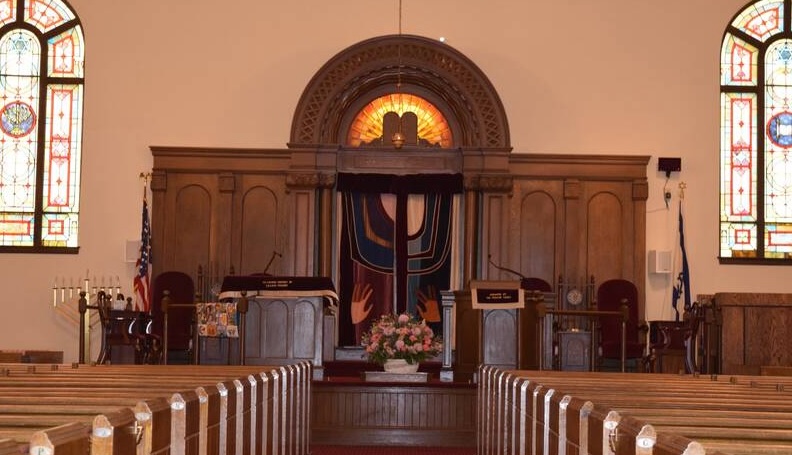- 177 Speedwell Avenue, Morristown, NJ 07960
- 973-538-9292
- office@mjcby.org
Jump to: Shabbat | Weekdays | Festivals | Life-cycle Events
 We are a warm, welcoming, participatory, and egalitarian congregation. Our services include lots of singing and we encourage participation.
We are a warm, welcoming, participatory, and egalitarian congregation. Our services include lots of singing and we encourage participation.
For B'nai Mitzvah (Son or Daughter of the Commandments), other special services, or a large turnout, we use the main sanctuary. For other services, we use the cozier Willner Chapel.
Prayerbook — We use Siddur Sim Shalom for Shabbat and Festivals. To support those who are visually impaired, we offer the prayerbook in large-font format.
Cell phones — (PROPOSED) In order to preserve the tranquility and holiness of the service, we request that you turn off your phone and not take pictures during the service. If you must be available, please turn your phone to "vibrate" and step outside of the prayer space to take the call. We really apppreciate your cooperation.
Kippot & Tallitot — (PROPOSED) When entering the synagogue, it is our custom that all males wear kippot (head coverings) and women are welcome to do so according to their personal custom. It is Jewish custom to wear a tallit (prayer shawl) during Shabbat and holiday morning services and on Kol Nidre (Eve of Yom Kippur). All Jewish individuals, age 13 and older, are requested to wear kippot and tallitot on the bima (pulpit) for all morning services and Kol Nidre.
Kashrut — (Anything about kashrut?)
(What else?)
(Note to Ritual Committee: Now that it is standard practice, do we need to discuss Imahot?)
[top]
Our Friday night service is held every week, usually beginning at 6:15p and we serve a Shabbat dinner immediately following the service. This is typically a meat meal with vegetarian and vegan options. All are welcome!
Our Shabbat morning service begins at 9:30a and we serve a dairy kiddush lunch with vegetarian and vegan options imediately following the service. All are welcome!
[top]
Ordinarily, we do not provide regular weekday services. However, Shiva minyans at a house of mourning are held at members’ homes and are announced through our phone message system (Do we have this?) and email. If you are saying Kaddish (Mourner's prayer) during the week for a Yahrzeit (anniversary of the death of a primary relative), we ask that you contact the office several days in advance so that we can gather a minyan.
[top]
[top]
We celebrate simchas (joyous events) together: From baby namings and brit milah (ritual circumcision) to B’nai Mitzvahs, Auf-rufs (the custom of a groom being called up to the Torah on the Shabbat before the wedding) and marriages. We come together to aid those who are in need: From counseling to comforting, from the Chevra Kadisha (burial society) to funerals and shiva minyans. MJCBY is a family and tries to provide the level of assistance that each particular family wants or needs. We respect the fact that each particular family’s needs are different, and we try not to intrude when assistance is not wanted.
Most of the assistance with life cycle events comes through our clergy or office. However, two aspects of the life cycle assistance that we provide are worth mentioning here as they are led by lay leaders:
[top]

